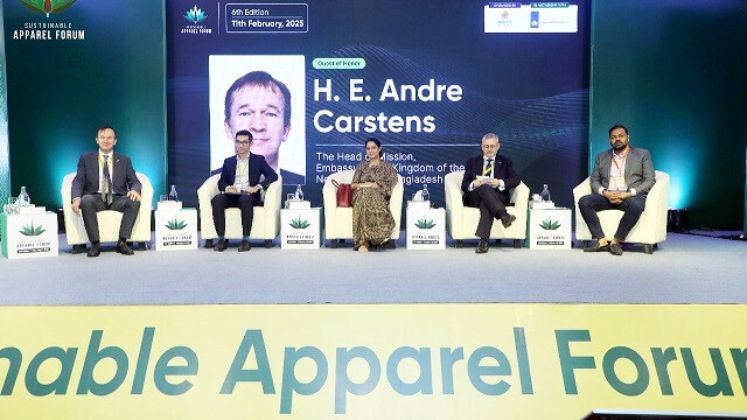
Leaders from the country’s textile and apparel industry have raised significant concerns regarding the Government’s proposal to impose a groundwater usage tax. This discussion unfolded during the inaugural ceremony of the ‘Sustainable Apparel Forum (SAF) 2025,’ organised by the Bangladesh Apparel Exchange (BAE) in collaboration with the Netherlands Embassy.
Water Resources Adviser Syeda Rizwana Hasan revealed that the Government is considering a tiered water usage tax for industries, categorising them based on water consumption to promote water recycling initiatives. However, industry leaders caution that such measures could have detrimental effects on the textile and readymade garment (RMG) sector, a critical component of Bangladesh’s economy.
Mahmud Hasan Khan (Babu), Managing Director of Rising Group, acknowledged the situation as presenting both challenges and opportunities. He stated, “While it might require some time for us to adapt, the positive impact of renewable energy is undeniable.”
Md. Showkat Aziz Russell, President of the Bangladesh Textile Mills Association (BTMA), voiced strong opposition to the proposed groundwater tax, warning that it could jeopardise the livelihoods of millions working in the industry. He emphasised that the backward linkage sector has invested around US $ 22 billion but lacks a robust policy framework. “Instead of creating obstacles for the textile sector, which is pivotal for foreign currency earnings, the Government should implement a comprehensive policy framework,” he said.
Russell further highlighted the need for essential policies to advance the sector, noting that the Government must lay the groundwork before implementing significant changes. He also pointed out missed opportunities in the market, such as the conversion of plastic waste into Mechanical Recycled Fibers (MMF), which could significantly benefit the industry.
Mahmud Hasan Khan mentioned that sustainability should be integral to business models, particularly through the implementation of Central Effluent Treatment Plants (ETPs). He cited successful examples from Rising Group and others, advocating for this approach as essential for water sustainability.
Leaders also underscored the importance of renewable energy, with Mahmud Hasan Khan sharing his experience from Rising Group’s solar energy initiative, which has generated 7MW of solar power over the past seven years. He stressed that policy support and shifting buyer mindsets are vital for sustained growth.






